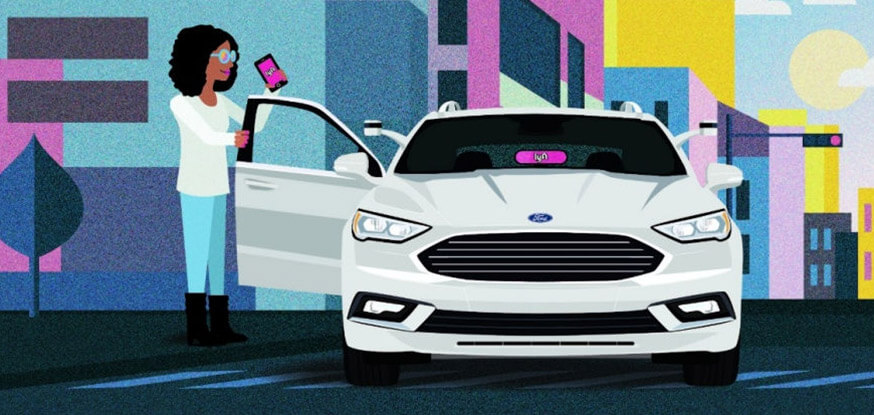Ford Motor Company said it has formed a partnership with ride-sharing service Lyft to deploy self-driving vehicles on Lyft's network in large numbers by 2021. The two companies will work together to design software that will allow Ford vehicles to communicate with Lyft's smartphone applications.
Sherif Marakby, Ford's vice president for autonomous vehicles and electrification, told Reuters that Ford self-driving vehicles will connect to Lyft's network, but customers won't be able to use them at first. Marakby said Ford plans to have human-driven vehicles on Lyft's network, but did not specify when Ford and Lyft will offer the first rides in autonomous cars.
Marakby said Ford doesn't intend on putting customers in self-driving vehicles until they are certain the technology delivers a "positive" and "reassuring" experience where the company can gain meaningful feedback.
"When ready, we'll have self-driving cars operating alongside Lyft's current community of drivers to help accommodate times of significant consumer demand to ensure that transportation remains timely and affordable," Marakby said.
Ford and Lyft will work together to enable the future dispatching of self-driving vehicles so that customers can get to their destination as safely as possible, Marakby said. Lyft will bring to the table its network of customers, growing demand for rides and knowledge of transportation flow within cities, while Ford will bring its experience with autonomous vehicle technology development and large scale manufacturing.
"With our combined capabilities, we believe we can effectively share information to help make the best decisions for the future," Marakby said. Ford will be focusing on how to create a technology platform so that it can easily connect with a partner's (such a Lyft's) to effectively dispatch a self-driving car.
Ford and Lyft will also focus on which cities they should work with to deliver the self-driving car service based on their shared data, and will also determine what kind of infrastructure will be necessary to service and maintain a fleet of self-driving vehicles to ensure they are available whenever a consumer needs one.
"We expect that our partnership with Lyft will accelerate our efforts to build a profitable and viable self-driving vehicle business," Marakby said. "With Lyft's network and respected brand experience, we expect our ability to scale self-driving vehicles will play a critical role in safely bringing this technology - and its many benefits - to mainstream consumers."

